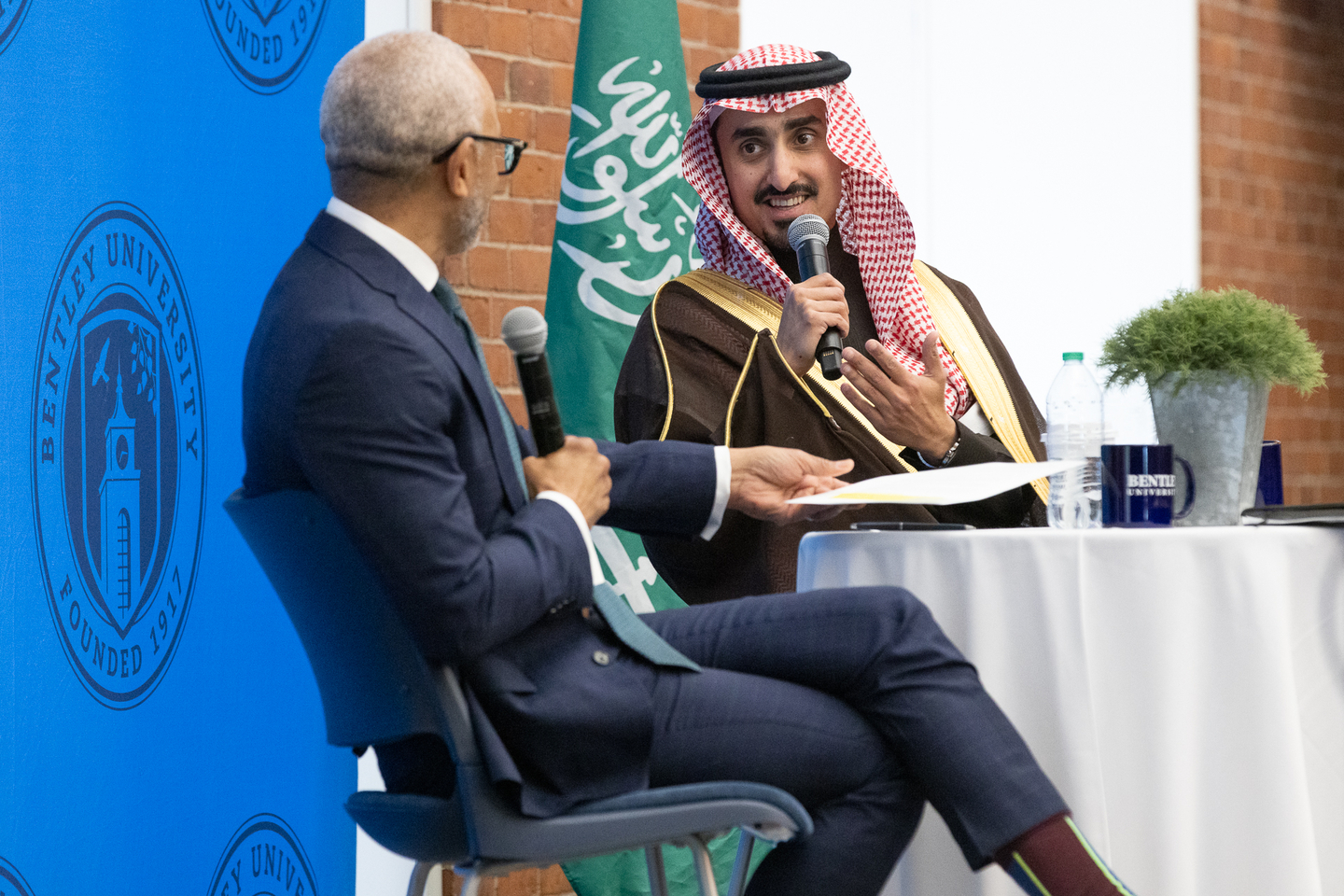
How Saudi Arabia is Diversifying Its Economy
Saudi Arabia is the largest economy in the Middle East and North Africa and is one of the largest oil producers in the world. On Feb. 26, the Bentley University community got an inside look at how the country is diversifying its economy to reduce its dependence on oil. As part of the President’s Speaker Series, Ryadh bin Mohammed Alkhareif, deputy chair of the International Monetary and Financial Committee at the International Monetary Fund (IMF), visited campus to share insights into Saudi Arabia’s role on the global stage.
Alkhareif says the Kingdom of Saudi Arabia has undertaken a massive socioeconomic transformation underpinned by the country’s strategic plan, Vision 2030, led by the country’s crown prince and prime minister, Mohammed bin Salman.
“When you look at economic diversification, historically the Saudi economy relied heavily on one source. Now we have put a lot of emphasis to diversify the economy towards non-oil activities,” Alkhareif said in a conversation with Bentley President E. LaBrent Chrite in the Executive Dining Room in LaCava. “But that doesn’t mean we are devaluing the importance of the oil sector. If anything, we are leveraging the capabilities in the oil sector to provide energy to the global economy — particularly that fossil fuel continues to play a significant role in the global mix of energy.”
He noted progress the country has made toward its Vision 2030 strategic plan, which identifies ways that Saudi Arabia will diversify its economy. Some of the country’s success expanding to non-oil sectors, he said, has included in the areas of tourism and entertainment as well as renewable energy.
A major effort that has helped diversify the country’s labor market is the Women Empowerment Budget Initiative. By creating workplaces that are more conducive to women, the country saw a boost in women’s workforce participation to around 36%, which exceeded the initial 30% target put forth under Vision 2030. Alkhareif underscored the major role of the kingdom’s fiscal policy in advancing social spending, including by improving access to healthcare and education, noting that social spending in the Saudi Arabia is at the top compared to other G20 countries.
During the conversation, Alkhareif expressed confidence that his country would continue successful relations with the U.S. and other global partners.
“The role between the Kingdom of Saudi Arabia and the United States has been historical, strategic and mutually beneficial to both countries and to the global economy,” said Alkhareif, who represents Saudi Arabia as governor at the African Development Bank Group and serves on the board at the Arab Monetary Fund. “We have seen cooperation between the United States and Saudi Arabia in different sectors, whether it is in the energy sector or the educational sector but also in business, which is very important.
“We have achieved significant milestones,” Alkhareif continued. “I believe there will be a great opportunity to enhance cooperation in trade, in financial cooperation, with positive spillovers regionally and globally.”
President Chrite’s President’s Speaker Series brings prominent and influential speakers to campus to share their insights, observations and experiences with students, faculty and staff. Previous speakers have included Paul Knopp, U.S. chair and CEO at KPMG; Rich Gotham, president of the Boston Celtics; and Edward Dugger III, CEO and president of Reinventure Capital.

